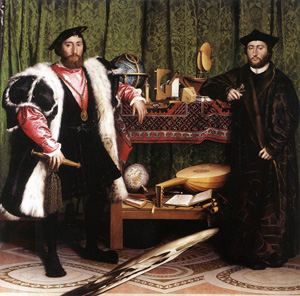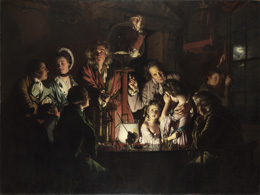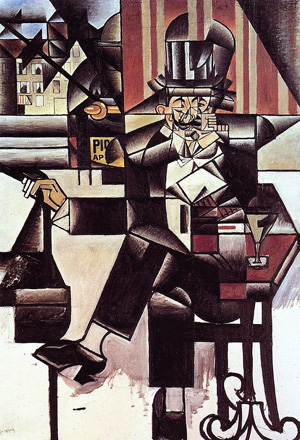
Your complimentary articles
You’ve read one of your four complimentary articles for this month.
You can read four articles free per month. To have complete access to the thousands of philosophy articles on this site, please
Articles
The Key Ideas of Western Philosophy
John Greenbank searches history for answers to persistent questions.
The history of philosophy must be understood as a series of serious intellectual and moral claims about fundamental issues. For instance, holding any belief involves the sacrifice of all alternatives to it, so does that imply that holding any belief must be a matter of certainty? Can we be certain of anything? Furthermore, if we adopt a belief without examining it, do questions of intellectual and personal integrity arise? Is seeking truth itself inevitably also an ethical matter?
The thinkers of ancient Greece laid the foundations of what has become Western philosophy. One of the earliest was Xenophanes (570-480 BC) who claimed that human knowledge has the character of belief, in that we cannot ‘know’ reality. At the personal moral level, there is the question of how best to live one’s life, conceived by the Greeks as eudaimonia – ‘the good life’. Philosophical answers have since ranged from promoting a search for personal happiness to having a selfless sense of duty of service to others. We are advised by the founder of Stoicism, Zeno of Citium (334-262 BC), that man is part of nature, not above it, and so we should live virtuously whilst bravely accepting our limitations. Moderation was advocated by Aristotle (384-322 BC) too – involving an assessment of the meaning of and a proportionate exercise of various virtues that he called ‘the Golden Mean’. A broad ethical rule known as the ‘Golden Rule’ – ‘do to others as you would have them do to you’ – is found in many religions; a version was also attributed to Confucius. Meanwhile the Buddha devised the ‘Eightfold Path’ as a way out of the suffering caused by unfulfillable desires for pleasures, power and possessions.
From Renaissance To Enlightenment

The Ambassadors by Hans Holbein (1553)
With the rise of humanism in the Renaissance from the Fourteenth through to the Seventeenth Centuries, the concerns of moral philosophers focused increasingly on responding to earthly predicaments, and philosophy began to show increasing reliance on reason instead of religious faith. Changes in attitudes to knowledge (‘renaissance’ means ‘rebirth of knowledge’) arose in part from the greater availability of translated Greek and Arabic texts and thus the stimulus of different cultures. Crises of reason and religious belief occurred for Copernicus, Galileo and Kepler; although Leonardo da Vinci felt free to reveal the workings of the human body through the dissection of corpses.
Political structures eventually also began to come under scrutiny, and in 1651 Thomas Hobbes published Leviathan to promote a view of government as contractual, thus advocating his own ‘golden mean’, so balancing order with freedom. The possibility again of civil war and a return to a state of lawless nature was to be avoided to such an extent that allegiance to a sovereign was a price worth paying for general security and the subsequent opportunities for personal progress. John Locke (1632-1704) was wary of sovereign power, and argued that Hobbes’ ‘social contract’, which considerably restricted personal freedom in exchange for an intended state protection from lawlessness, should include particular civil rights, one of which was the freedom to remove a tyrannical monarch or bad government.
Equivalences were being established between personal freedoms and natural rights, and a concept of civilisation was developing which centred on the new concept of ‘liberty’. The ideal of freedom became a European preoccupation, especially with the writings of Voltaire (1694-1778) and Rousseau (1712-1778) energising the revolutions in France and America. This preoccupation with liberty also later appeared in the writings of John Stuart Mill (1806-1873), who promoted our right to do as we wish as long as we do not prevent others from doing likewise. Ideas from France inspired a British ‘utilitarian’ school, founded by Jeremy Bentham (1748-1832), who devised a ‘calculus of felicity’, whereby “the greatest happiness of the greatest number… is the measure of right and wrong.” For Bentham, morality is determined by the consequences of our actions; contrasting with Mill’s centering morality on the notion of personal freedom, albeit that Mill was also himself a utilitarian.
Mathematics and science remarkably connected rationalism – the idea that pure reason can discover truth – with empirical enquiry, allowing spectacular technological advances to be made in the Seventeenth and Eighteenth Centuries and setting the scene for the Industrial Revolution. These centuries are dubbed ‘the Age of Reason’ or ‘the Enlightenment’.
René Descartes (1596-1650) claimed a proof of his own existence merely from recognition of his ability to think (“I think therefore I am”). In 1949, British philosopher Gilbert Ryle argued that Descartes had committed a ‘category error’ – that of thinking of the mind as a place where thoughts and feelings occur analogous to our bodies being the location of our senses, although mind is a non-corporeal ‘ghost in the machine’. Philosophy is littered with such abstract ‘ghosts’, innocently but falsely treated as entities belonging to the world of things.

An Experiment on a Bird in the Air Pump by Joseph Wright (1768)
In contrast to the rather abstract rationalist approach of Descartes, in the Seventeenth and Eighteenth centuries British empiricism treated reason as best applied by testing the world discoverable through our senses and amenable to experimentation. Hobbes and Locke had described the world in material and mechanical terms. It had first begun to be systematically examined in these terms by Francis Bacon (1561-1626).
All ideas run the risk of being taken to extremes, and empiricism proved no exception. French thinkers, including Auguste Comte (1798-1857), transformed empiricism into positivism – the belief that knowledge is limited to what can be ‘positively’ verified. This requirement arose as a protest against rationalist explanations that seemed tainted with metaphysical overspeculation. Comte applied positivism to attempt to discover laws of social behaviour. (Marx could not agree with Comte’s sociology, although he fully accepted that sociological investigation should be scientific, and metaphysics forgotten.)
Germanic Thoughts Rising
In the 1700s, German philosophy turned strongly metaphysical. The ‘transcendental idealism’ of Immanuel Kant (1724-1804) proposed a world understood by the senses (the phenomenon) yet underpinned by a reality independent of the senses that we cannot know (the noumenon). Kant considered what he called the ‘categories’ of our understanding – concepts of matter, space and time, amongst others – to be innate capacities of thought, such that when we encounter new things in the world, we are naturally equipped to inevitably understand them in terms of these categories. Kant also restored the idea of motive, not consequences, as the essential component in judging human behaviour morally, and he concluded that one must not treat another person simply as a means to an end. He also believed that universal moral laws existed as ‘categorical imperatives’ demanding unqualified obedience.
After Kant there followed in Germany a raft of ‘idealist’ (‘reality is mental’) philosophers, annexing ideas to an almost mystical world. By way of example we can contrast Johann Fichte (1762-1814) and Friedrich Schelling (1775-1854). David Hume (1711-1776) in Scotland agreed with Kant that scientific laws are not deducible from observations of the world, but Fichte said that we have an innate mental structure allowing us to deduce reality, and that the ‘I’ – the knowing subject – thus causes reality to appear as the ‘not-I’, yet under the character of the essential moral nature of man. Schelling objected that a knowing subject cannot exist without there being something already there to know, and that Nature is a creative process with man at the apex. (These ideas were to return, transformed, in Nineteenth Century arguments for the evolution of life-forms by natural selection.) These were subtle observations highlighting the problem of objectively observering a world that includes the observer.
Arthur Schopenhauer (1788-1860) complicated matters further by accepting Kant’s separation of phenomena and noumena, but now as aspects of the same thing: the Will is the noumenon, and its Representation is the phenomenon. We can directly know our own Will, but not the Will of anything (or anyone) else, which we can only represent. Since time and space do not exist in the noumenal world, the Will is a universal undifferentiated source of energy, powering the differentiated world of representation.
For G.W.F. Hegel (1770-1831), reality itself is immaterial – Spirit (Geist) – and in a process of evolution that constitutes the progress of history, and which demonstrates Spirit’s internal structure. So in contrast to Kant’s fixed categories of understanding, with Hegel we have a constantly developing consciousness. The dynamic of progress is a ‘dialectical’ interaction of opposites: thesis conflicts with antithesis to produce a synthesis which becomes the new thesis. So for instance despotism conflicts with freedom to yield some form of ordered justice, this representing a progressive, upward outcome. To Hegel each age has its own Spirit (Zeitgeist) which both manifests and conditions the thoughts and understanding of that age. If our thoughts do not match the zeitgeist we may sense alienation – feelings of isolation, anxiety and meaninglessness.
Ludwig Feuerbach (1804-1872) turned Hegel’s ideas upside down, replacing Hegel’s idealism with materialism. For him there was no ‘spirit’, and theology must be understood as anthropology. Karl Marx (1818-1873) admired Feuerbach, agreeing with him that God is a mere projection of human hopes and fears. and reconfigured Hegel’s idealism to understand human history as ‘dialectical materialism’, which he interpreted as implying an inevitable process towards a classless society – which process may however be actively accelerated through revolution. Human destiny was solely for man to determine: religion was “the opium of the people.” In Das Kapital (1867), capitalism is presented as an unstable economic system where both employer and employed are dehumanised cogs in an industrial machine and so alienated from creative work.
Existential Concerns
From the middle of the Nineteenth Century onwards, philosophers started to move away from considering the metaphysics of objective reality to subjective problems of identity and personal responsibility, here and now, significantly focusing on man and his situation – mortal and born by chance. If the world is meaningless and impersonal, what guidance is there for life? What becomes of concepts like good and bad?
This moral reorientation began philosophically with Søren Kierkegaard (1813-1855) and Friedrich Nietzsche (1844-1900). Kierkegaard objected to the individual being treated as part of a movement of universal history, and claimed for himself and others a freedom of choice. He considered it to be each person’s inescapable responsibility to live his short life to the full, searching for meaning and accepting any obligations that arise. That very responsibility makes us feel anxious (Angst).

Man in the Cafe by Juan Gris (1912)
Kierkegaard and Nietzsche inspired two similar types of thinking – phenomenology and existentialism. These differ in their interests and their style of questioning, but they are both anti-metaphysical in the sense of wishing to concentrate on the world as directly perceived, and to exclude certain types of metaphysical question. Edmund Husserl (1859-1938), the founder of phenomenology, looked at problems of individuality in a systematic way. He purposely ignored any question that did not arise from our direct awareness of the world, what he called the ‘world of life’ (Lebenswelt): he was only concerned with our first-person experience. This brought up a deep consideration of the meaning and status of statements beginning with ‘I’: what does it mean to say ‘I act’, for example?
Husserl’s pupil Martin Heidegger (1889-1976) broke ranks by adding to the phenomena of our awareness the phenomenon of our own existence – our ‘being-in-the-world’ (Dasein) – which he identified with time. For Heidegger our being human is defined by the timescale of our lives, and the need to make them in some sense significant by living ‘authentically’, ie, in recognition of our mortality. This anxious self-awareness and the need to create meaning characterised existentialism as an expression of ‘the meaning of the moment’. However, there is but a fine line between the phenomenology of, say, Maurice Merleau-Ponty (1908-1961) and the existentialism of philosopher-artists such as Jean-Paul Sartre (1905-1980), Simone deBeauvoir (1908-1986), and Albert Camus (1913-1960). For all these thinkers our sudden coming into existence presents the question of what we are to become. Sartre claimed that in a search for personal identity we can escape neither personal responsibility, nor society: “Hell is other people.” Camus faced the issue of personal meaning defiantly, in terms of ‘absurdity’.
Influenced by Charles Darwin, Henri Bergson (1859-1941) proposed that human life is caught up in an evolutionary process – in a forward movement of creation. Bergson argued that we are not especially equipped for abstract thought or understanding: our human characteristics are shaped by natural selection only for our survival, not for us to understand the universe and our place in it. He said our awareness of the passing of time was the result of a ‘life force’ (élan vital) engaging with us in our experience of reality.
Language, Truth and Logic
The rise of science in the Nineteenth Century attracted much philosophical interest. It is important to note the difference between a mere reasoned point of view and a experiment-based scientific conceptual framework of understanding. Thus, psychology, economics and sociology are soft sciences – so-called because they lack the clear experimental procedures of chemistry and physics.

Supremus No. 58 by Kasimir Malevich (1916)
Finally (as it were), attention was focused on language as an area of scientific study. Semiotics (the study of signs) was explored by Ferdinand de Saussure (1857-1913) in terms of the binary concept of ‘sign’ and ‘signified’. An analysis of textual meaning became the goal of ‘structuralists’ such as Roland Barthes (1915-1980) and Louis Althusser (1918-1990), psychoanalyst Jacques Lacan (1901-1981), and anthropologist Claude Levi-Strauss (1908-2009). Barthes and Althusser developed semiotics to a point where Michel Foucault (1926-1984) and Jacques Derrida (1930-2004) decided that human discourse can be explained through the ‘deconstruction’ of language, as Derrida called it. (Similar thinking in theology concentrated on ‘redaction’.) The deconstructionist approach ultimately led to ‘post-structuralism’, according to which statements about reality were said to be based on circular reasoning and self-reference.
In America, Charles Peirce (1839-1914) established a school of thinking based on the ‘pragmatic’ view that our conception of an object depends on what is useful to us about it. For pragmatists, knowledge does not have to represent the world beyond what is needed for adequate explanation of a task or situation. (As a way to handle facts, this view stands somewhere between science and positivism.) William James (1842-1910) elaborated pragmatism, and also attempted a scientific study of awareness, coining the phrase ‘stream of consciousness’ [please also see ‘Brief Lives’ this issue, Ed]. John Dewey (1859-1952) followed the pragmatist approach by extending the concept of usefulness to ‘learning through activity’. Here sensory input either prepares the mind or consolidates ideas learned elsewhere. Morally speaking, Dewey’s pragmatism dispensed with any social contract, focusing instead on the individual citizen’s right and need for self-realisation, and advocating the provision of education in order to produce a ‘moral community’.
More recently, adopting a ‘neopragmatist’ approach, Richard Rorty (1931-2007) rejected the view that our knowledge is a ‘mirror of nature’ – that our senses and reason together provide a true reflection of the world. For Rorty, our awareness comes about by our conceptualising sensory information in linguistic formulations, so tying truth to current linguistic usage. A degree of relativity of truth is inevitable. Thomas Kuhn (1922-1996) developed the concept of the ‘paradigm’, in which truth survives in temporary formulations.
In contrast to the pragmatists, in Germany Gottlob Frege (1848-1925) insisted that logic is self-standing – independent of the thought processes revealed by psychology. In England Bertrand Russell (1872-1970) and Alfred North Whitehead (1861-1947) proved the identity of mathematics and logic, so encouraging belief in the possibility of objective knowledge of the world through science. (Whitehead also developed a theory of the process of the universe, harking back to Hegel, Feuerbach and Bergson.) The power of logic began to be applied in procedures known as analytic philosophy. Symbolism was devised with the aim of presenting linguistic propositions in logical terms and combining them to obtain absolutely true or false statements. But it soon became clear that linguistically-expressed propositions are generally not so unambiguous that they could be tidied up under any simple sort of logical analysis. For instance, the statement ‘The man in the moon is naked’ proves difficult to logically analyse, let alone verify.
Analytic philosophy also appears prominently in the thinking of Ludwig Wittgenstein (1889-1951), whose Tractatus Logico-Philosophicus (1922) says that the world is “the totality of facts, not things.” Concern about the logical structure of language eventually turned into linguistics, the study of the structure of expressions in terms of their grammar and semantics. Noam Chomsky (1928-) advanced the view that all human languages exploit an innate grammar, although it has not proved possible to establish this idea scientifically.
The early experiments with Marxism and Fascism (including Nazism) showed that ideology on its own cannot provide political stability unless political communication (and thus shared values) is limited. Also, we have seen that a political system must never fall into the hands of a few, or we are soon back to oligarchy or tyranny. However, thinkers centred in Frankfurt, including Herbert Marcuse (1898-1979), György Lukács (1885-1971) and Jürgen Habermas (1929-) attempted to rescue Marxist ideas as much from the excesses of tyrants such as Stalin as from the power of capitalism. They developed critical theory in order to try to provide a new ideological dynamic, since both communism and capitalism seemed intellectual fossils.
Coming into recent thinking, Slavoj Žižek (1949-) objects to a passive acceptance of the failures of both Marxism and capitalism, urging a re-examination of the one and the exploitation of the impending collapse of the other. In the US, John Rawls (1921-2002) equated justice with fairness by way of a thought experiment in which people choose the rules of society without knowing what their position in it will be. However, this formulation of justice was challenged by Robert Nozick (1938-2002), who equated justice not with fairness, but with liberty based on rights of ownership.
Coda
In his postscript to his book Ethics and the Limits of Philosophy (1990), the ever-worrying rationalist philosopher Bernard Williams claimed that a moral philosophy rests on truth and the meaning of an individual life, and that the natural sciences are capable of objective truth. Western philosophy revolves around these two ideas – although to me the ‘objective truth’ of science is better understood as representational or metaphorical, that is, as providing pictures or models by which to understand reality. Our experience of the universe seems to be that it holds together as if thoroughly interconnected, but that some aspects of our experience do stand apart from the rest as if different realities – notably ethics and aesthetics. Moral philosophy, aesthetic sensibility, and science are each multi-levelled, although the cross-linkings between areas and levels may remain unclear for some time.
I believe that the fundamental problem for philosophy for the early Twenty First Century is fundamentalism, where some beliefs are considered to be beyond question. One does not need to take sides to deplore the mutual hatred shown by fundamentalist religious and other factions, often on a war footing, where, underlying disagreements, there is blatant denial of the worth and integrity of an individual life. Our educational systems can begin to put this right; not merely by appealing to mutual tolerance, but by teaching clarity of thought: the methods and procedures of logical thinking. Each of us must learn to recognise a fallacy, and to accept a paradox, whilst retaining our humanity.
© John Greenbank 2014
John Greenbank graduated in Natural Sciences and English from Clare College, Cambridge, and in Mathematics from the Open University. He is currently developing a range of modern shortwave crystal radio designs for amateur construction.









